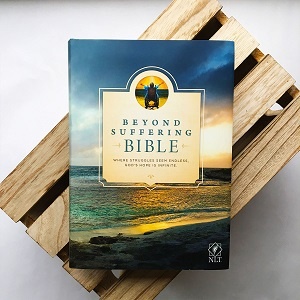“My God, my God, why have you abandoned me?
Why are you so far away when I groan for help?
Every day I call to you, my God, but you do not answer.
Every night I lift my voice, but I find no relief.
Yet you are holy,
enthroned on the praises of Israel.
Our ancestors trusted in you,
and you rescued them.
They cried out to you and were saved.
They trusted in you and were never disgraced.
But I am a worm and not a man.
I am scorned and despised by all!
Everyone who sees me mocks me.
They sneer and shake their heads, saying,
‘Is this the one who relies on the Lord?
Then let the Lord save him!
If the Lord loves him so much,
let the Lord rescue him!’
Yet you brought me safely from my mother’s womb
and led me to trust you at my mother’s breast.
I was thrust into your arms at my birth.
You have been my God from the moment I was born.
Do not stay so far from me,
for trouble is near,
and no one else can help me.
My enemies surround me like a herd of bulls;
fierce bulls of Bashan have hemmed me in!
Like lions they open their jaws against me,
roaring and tearing into their prey.
My life is poured out like water,
and all my bones are out of joint.
My heart is like wax,
melting within me.
My strength has dried up like sunbaked clay.
My tongue sticks to the roof of my mouth.
You have laid me in the dust and left me for dead.
My enemies surround me like a pack of dogs;
an evil gang closes in on me.
They have pierced my hands and feet.
I can count all my bones.
My enemies stare at me and gloat.
They divide my garments among themselves
and throw dice for my clothing.
O Lord, do not stay far away!
You are my strength; come quickly to my aid!
Save me from the sword;
spare my precious life from these dogs.
Snatch me from the lion’s jaws
and from the horns of these wild oxen.
I will proclaim your name to my brothers and sisters.
I will praise you among your assembled people.
Praise the Lord, all you who fear him!
Honor him, all you descendants of Jacob!
Show him reverence, all you descendants of Israel!
For he has not ignored or belittled the suffering of the needy.
He has not turned his back on them,
but has listened to their cries for help.
I will praise you in the great assembly.
I will fulfill my vows in the presence of those who worship you.
The poor will eat and be satisfied.
All who seek the Lord will praise him.
Their hearts will rejoice with everlasting joy.
The whole earth will acknowledge the Lord and return to him.
All the families of the nations will bow down before him.
For royal power belongs to the Lord.
He rules all the nations.
Let the rich of the earth feast and worship.
Bow before him, all who are mortal,
all whose lives will end as dust.
Our children will also serve him.
Future generations will hear about the wonders of the Lord.
His righteous acts will be told to those not yet born.
They will hear about everything he has done.” Psalm 22, NLT
Note from the New Believer’s Bible
Psalm 22 is one of the most dramatic scriptural descriptions of what happened when Jesus died on the cross. What makes this so amazing is that it was written a thousand years before the Crucifixion took place.
The Medes, Persians, and Assyrians devised this horrible form of death, spreading it throughout the East. The Romans borrowed it from the Phoenicians and then took it to another level. They crucified thousands of people.
And yet Psalm 22 reads as a vivid eyewitness account of Jesus’ crucifixion. It is one of the most amazing messianic prophecies anywhere in Scripture. Jesus quoted directly from it as he hung on the cross (Matthew 27:46).
Look inside the New Believer’s Bible









































Recent Comments